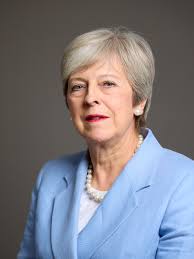
Introduction
Theresa May, the former Prime Minister of the United Kingdom, continues to be a significant figure in British politics, even after her resignation in 2019. As one of the few female leaders to have held the position, her premiership and policies have sparked numerous discussions regarding Brexit, national security, and immigration. Understanding her political legacy is essential, especially in the context of ongoing discussions about the UK’s future.
Key Policies and Events
May took office on July 13, 2016, succeeding David Cameron amidst the turbulence following the Brexit referendum. One of her primary focuses was to deliver a successful exit from the European Union. However, her term was marked by significant challenges, including three failed attempts to pass her Brexit deal in Parliament. May’s position became increasingly precarious as her leadership faced criticism from both the public and her party members.
Beyond Brexit, May also concentrated on domestic issues such as housing and the economy. She launched the “Help to Buy” scheme aimed at assisting first-time homebuyers, and her government sought to address the social care crisis with a proposal for increased funding, although it faced backlash. Her administration also took a tough stance on immigration and implemented measures to reduce net migration.
National Security and Foreign Affairs
During her tenure, national security was thrust into the spotlight, notably following the Westminster Bridge and Manchester Arena attacks in 2017. May’s government responded with increased counter-terrorism measures and updated laws aimed at tackling extremism. Internationally, she faced criticism over her close ties with U.S. President Donald Trump and her handling of relations with Russia, particularly in the context of the Skripal poisoning incident in 2018.
Conclusions and Significance
Theresa May’s time in office reflects both the complexities of contemporary British politics and the challenges of leadership during a period of significant change. Her commitment to navigating the intricacies of Brexit, alongside her efforts to address pressing domestic issues, showcases a multifaceted approach to governance. As the UK continues to evolve post-Brexit, May’s policies and leadership style are likely to be studied for future political understanding and development.
In retrospect, the significance of Theresa May’s leadership lies not only in her policies but also in how her experiences may shape future political discourse in the UK. With ongoing debates surrounding Brexit and the subsequent impact on British society and the economy, understanding her tenure provides crucial insights into the potential paths forward for the nation.
You may also like

Understanding the Current Political Landscape in the UK

Boris Johnson: A Look at His Current Political Landscape

Recent Developments Involving Jacob Rees-Mogg
SEARCH
LAST NEWS
- Remembering Wendy Richard: The Promise to Co-Star Natalie Cassidy
- How Did Anglian Water Achieve an ‘Essentials’ Rating for Mental Health Accessibility?
- Shai Hope Leads West Indies in T20 World Cup Clash Against South Africa
- What We Know About Weston McKennie: Future at Juventus and Past at Leeds
- What We Know About the Upcoming Live Nation Antitrust Trial